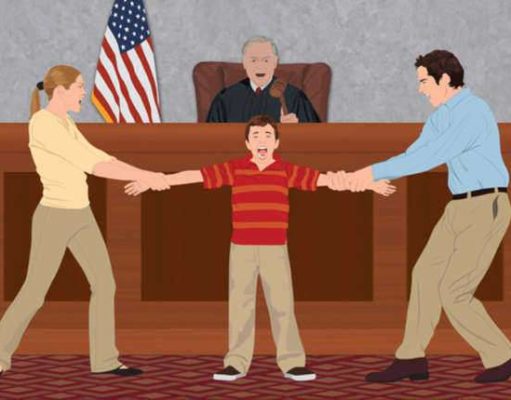Custody Laws At A Glance

Custody Laws At A Glance
Custody laws are an essential aspect of family law that governs the legal relationship between parents and children. They are designed to ensure that the best interests of the child are taken into consideration, and that the child’s welfare is protected. In this article, we will provide an overview of custody laws, the different types of custody arrangements, and how custody determinations are made.
Types of Custody Arrangements
There are several types of custody arrangements, and the type of arrangement that is appropriate will depend on the specific circumstances of the case. Some of the most common types of custody arrangements include:
1. Sole Custody
Sole custody means that one parent has exclusive legal and physical custody of the child. This is generally only awarded when one parent is deemed unfit or unable to care for the child.
2. Joint Custody
Joint custody means that both parents share legal and physical custody of the child. This type of custody arrangement is becoming increasingly popular as the courts recognize the importance of both parents in a child’s life.
3. Physical Custody
Physical custody refers to the physical care and control of the child. It determines where the child will live on a day-to-day basis.
4. Legal Custody
Legal custody refers to the right to make important decisions about the child’s welfare, such as medical treatment, education, and religion.
Custody Determinations
Custody determinations are made based on what is in the best interests of the child. The court will take into account several factors when making a custody determination. Some of the factors that the court will consider include:
1. The Age and Needs of the Child
The court will consider the age and specific needs of the child, such as educational, health, and social needs.
2. The Relationship of the Child with Each Parent
The court will evaluate the relationship of the child with each parent to determine which parent can offer the best quality of care.
3. The Ability of Each Parent to Care for the Child
The court will assess the ability of each parent to meet the child’s needs, including their financial, emotional, and physical ability.
4. The Presence of Domestic Violence
If there is a history of domestic violence in the family, the court will take this into consideration when making a custody determination.
Modification of Custody Arrangements
Custody arrangements are not always set in stone. Sometimes, circumstances change, and a modification of the custody arrangement is necessary. Some of the factors that the court will consider when deciding to modify a custody arrangement include:
1. A Substantial Change in Circumstances
To modify a custody arrangement, there must be a substantial change in circumstances since the original order was made. For example, if one parent is required to move to a different state for work, this may warrant a modification of the custody arrangement.
2. The Best Interests of the Child
The court will always prioritize the best interests of the child when making a modification to a custody arrangement. If a proposed change to the custody arrangement is not in the best interests of the child, the modification will not be granted.
3. The Intent of the Original Orders
The court will also consider the intent of the original custody orders when deciding whether to modify the arrangement. The original orders may have established a specific intent that the court will want to preserve.
Conclusion
Custody laws are a crucial aspect of family law that is designed to ensure that the best interests of the child are taken into account. The type of custody arrangement will depend on the specific circumstances of the case, and the court will make custody determinations based on the specific needs of the child. Understanding custody laws is an essential aspect of any divorce or separation involving children, and consulting with an experienced family law attorney can be helpful in navigating this complex area of law.
Issues over child custody are often enshrouded in tumultuous feelings and strong emotions. The quarrels that exist between partners can often impede a ruling for a child custody case. One of the most common problems that effectively delays and complicates custody laws is leaving a state with a child in the middle of a custody battle.
A parent’s desire to move will be regulated by a state’s custody laws; all states set forth specific parameters which define the rights of the parents involved of where and how far they can relocate. The court system that issued the initial custody ruling must approve the parent’s move if an agreement is not reached through negotiation.
Leaving a state with a child is specifically regulated by a state’s custody laws. Regardless of location or ruling, the non-custodial parent can object to the desired move and request the court change custody.
Leave a state with a child and away from the jurisdiction of the original court is considered a material change of circumstances. This definition represents an alteration to the custodial situation that yields an amendment of the custodial rights.














